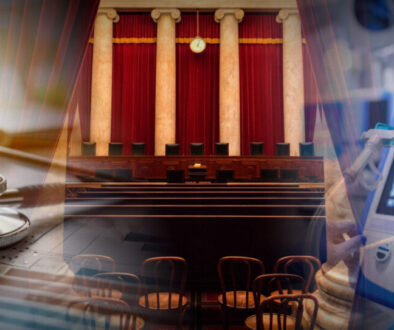DOL fiduciary rule likely to tinker with popular exemption, analysts say
In a world where regulations and rules come and go at a dizzying pace, Prohibited Transaction Exemption 84-24 achieved legendary status in the life insurance and annuity space.
Created in 1977 and amended several times over the years, PTE 84-24 allows producers to receive commissions when retirement plans and IRAs purchase insurance and annuity contracts.
So there is plenty of consternation afoot over what the Department of Labor plans to do with the popular exemption within its fiduciary rule rewrite. The new rule is complete and was sent to the White House Office of Management and Budget late Friday.
The OMB has 90 days to review a rule before its contents are publicly unveiled for comment.
Fred Reish, a partner at Faegre Drinker Biddle & Reath, has long expected the DOL to target PTE 84-24 in any fiduciary rule rewrite.
“I think that [PTE 84-24] will be amended to include more demanding conditions, such as requiring a best interest process, disclosures of conflicts of interest, and a fiduciary acknowledgement,” he said this week.
A spokesman for the DOL’s Employee Benefits Security Administration declined comment on the rule.
Incremental exemption change
As far back as July 2021, Reish wrote that signs were afoot that the DOL aimed to strengthen PTE 84-24 and was going about it in a roundabout way. At that point, the Trump administration DOL had created PTE 2020-02, which was allowed to take effect by the incoming Biden administration.
Under PTE 2020-02, if an “investment professional” gives fiduciary advice to a retirement investor, the “financial institution” is also considered a fiduciary. There are strict requirements with this exemption.
Along them, the producer must adhere to “Impartial Conduct Standards.” They include: give advice that is in the best interest of the participant, the insurance company and the agent receive no more than reasonable compensation, and make no materially misleading statements.
“A significant issue under PTE 2020-02 for insurance companies that work with independent agents is how the insurance company can know if the agent is acting as a fiduciary,” Reish wrote.
As a result, many insurance companies and their producers continued to use PTE 84-24. But Reish warned then that changes were coming: “It is possible — perhaps even likely — that new and more demanding conditions will be added to 84-24,” he wrote.
The exemption is one area Chuck DiVencenzo, president and CEO of the National Association for Fixed Annuities, will be looking at closely.
“84-24 probably looks more like the old Obama-era rule,” he said. “They’ll talk about specific disclosures, a person’s compensation and how often it’s received, for instance, and an acknowledgement that there can’t be any material conflict of interest.”
The Obama administration first published a fiduciary rule in 2016. Industry trade groups immediately sued and the rule was tossed out by the Fifth Circuit Court of Appeals in 2018, which led to the Trump administration effort and the PTE 2020-02 option.
Strong state activity
Industry lobbyists heeded the warning. Over the past two years, 40 states adopted best-interest annuity sales rules based on a model put forth by the National Association of Insurance Commissioners. Trade groups are heavily behind the push to spread best-interest rules as far as possible.
Another “five or six” additional states are in line to pass the annuity rules soon, DiVencenzo said.
“With the Obama-era fiduciary rule, we didn’t have that card to play,” he said of the state regulatory regime. “And it’s not just conservative states. A lot of very liberal states have put this into play.”
In the meantime, DOL efforts were stung by a pair of lawsuits against the Trump administration rule, one of which remains active.
In Florida, Judge Virginia M. Hernandez Covington sided with the American Securities Association in a February ruling striking down a portion of guidance the DOL issued in 2021 expanding the definition of a retirement plan fiduciary. The judge ruled that a portion of the department’s frequently-asked-questions guidance illegally widened its regulatory lane, and failed to comply with the agency’s own regulations.
The DOL initially appealed the ruling, then withdrew its objections.
In Texas, the Federation of Americans for Consumer Choice, joined by a number of independent insurance agents and agencies, is making similar claims in its lawsuit against the DOL in Dallas federal court.
Good for insurance?
Not everyone in the insurance world is opposed to strong regulation. Michelle Richter-Gordon of MRG Advisors said the rule could help the insurance industry gain equal footing with their advisor counterparts who give financial advice and planning, while also managing assets and making investments for clients.
“There’s no reason why we should not receive equal treatment for our expertise with that of investment advisors,” she said. “We insurance people should also get to sell both products and services. We are not a subclass.”
Too often, insurance producers are saddled with a poor reputation that comes from “bad actors” and the selling mindset, said Richter-Gordon, who co-founded the fee-only RIA Annuity Research & Consulting in January.
“We deserve parity with financial professionals,” she said. “We deserve ‘insurance advisement’ as an additional regulatory frame that could be used just as financial professionals may hold both a brokerage and advisement affiliation.”
Senior Editor John Hilton covered business and other beats in more than 20 years of daily journalism. John may be reached at john.hilton@innfeedback.com. Follow him on Twitter @INNJohnH.
© Entire contents copyright 2023 by InsuranceNewsNet.com Inc. All rights reserved. No part of this article may be reprinted without the expressed written consent from InsuranceNewsNet.com.
The post DOL fiduciary rule likely to tinker with popular exemption, analysts say appeared first on Insurance News | InsuranceNewsNet.



